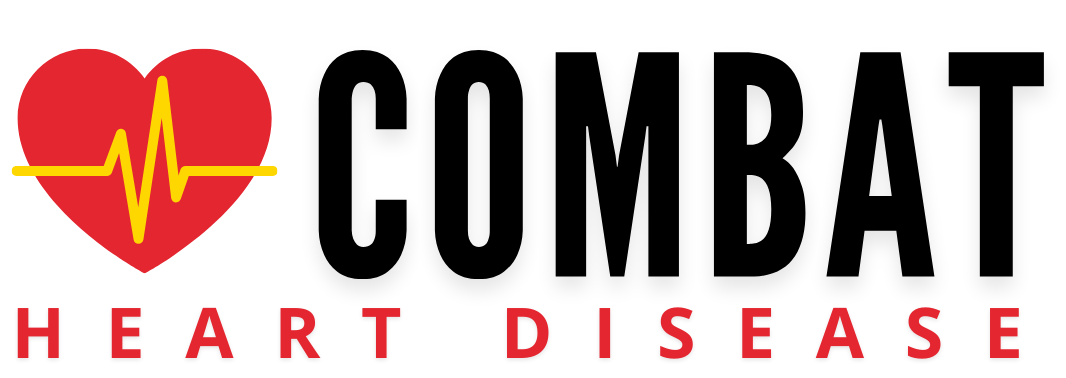The human body’s lifelines are its arteries, acting as the main highways for blood transportation. Keeping these arteries clear is not just a health goal; it’s a necessity for maintaining a vibrant life. The importance of artery health is paramount as they are directly linked to the heart’s well-being and overall functionality.
The connection between diet and arterial health is profound. The right foods can act as a natural broom. Sweeping away the debris that clogs arteries, leading to improved heart health and a reduced risk of heart attacks.
Understanding Heart Attacks
Causes of Heart Attacks: Heart attacks are the result of restricted blood flow, typically due to blockage in the arteries. This blockage is often a buildup of fat, cholesterol, and other substances, which can form a plaque in the coronary arteries.
Preventative Measures: The best defense against a heart attack is a good offense, which includes a heart-healthy diet, regular physical activity, and avoiding tobacco smoke.
7 Foods That Clean Arteries
7. Blueberries
Nutritional Power: Antioxidants, Fiber, and Vitamin Content

Blueberries may be small, but their impact on heart health is significant. These berries are a nutrient-dense superfood, offering a plethora of antioxidants, fiber, and essential vitamins that play a crucial role in cardiovascular wellness.
Antioxidants: The Anthocyanin Effect
Blueberries are championed for their high concentration of anthocyanins, which bestow upon them their vibrant hue and act as powerful antioxidants. The protective capacity of these antioxidants is unmatched, leading the charge against oxidative stress and inflammation, and potentially slowing down the aging process as well.
Fiber and Vitamins: A Synergistic Blend for Heart Health
A serving of blueberries contributes substantial fiber, promoting cholesterol management and aiding in weight control – both crucial for heart health. Alongside, they are a rich source of vitamin C and K, with just a cup covering substantial percentages of the recommended daily intake for these vitamins.
Heart Health Benefits: Beyond Blood Pressure
Studies underscore blueberries’ ability to ameliorate blood pressure and arterial function. Their role in vascular health cannot be overstated, with research suggesting regular intake can lead to a noteworthy reduction in heart disease risk.
6. Citrus Fruits
Nutritional Power: Vitamins, Flavonoids, and Fiber
When we consider citrus fruits, it’s their refreshing tang and zest that often come to mind first. But beyond their invigorating taste, citrus fruits like oranges, lemons, grapefruits, and limes are formidable foes of heart disease.

Vitamin C: The Heart’s Shield
The abundance of vitamin C in citrus fruits is more than just an immune booster. It is a critical antioxidant, safeguarding the body from free radicals and aiding in the production of collagen, vital for robust blood vessels.
Flavonoids: The Blood Pressure Regulators
Citrus fruits also boast a wealth of flavonoids, including hesperidin and naringin, which exhibit potent anti-inflammatory and antioxidant qualities. They’ve been found to enhance blood vessel function and assist in hypertension management.
Fiber: The Cholesterol Combatant
The fiber content in these fruits, particularly the soluble type that has a hand in lowering levels of LDL cholesterol. This reduction is a direct line to diminishing the risk of heart disease.
Heart Health Benefits: Cholesterol and Hypertension in Check
The practical health implications of consuming citrus fruits are profound. They contribute to maintaining a healthy cholesterol profile and to regulating blood pressure levels, thereby mitigating heart disease risk factors.
Bear in mind that these insights are but a glimpse of the comprehensive strategies outlined in our e-book. Look out for our e-book’s release, which promises to be an indispensable resource on your journey to a heart-healthy lifestyle.
5. Beetroot
Nutritional Power: Nitrates, Vitamins, and Minerals

The humble beetroot packs a punch when it comes to heart health, boasting an impressive nutritional profile. It’s rich in a range of nutrients such as potassium, magnesium, iron, vitamins A, B6, and C, folic acid, soluble fiber, antioxidants, and betaine—all of which are crucial for optimal cardiovascular function.
Nitrates and Nitric Oxide: Beetroot is particularly valued for its high concentration of nitrates, which the body converts into nitric oxide—a molecule that plays an essential role in vascular health. Nitric oxide helps to relax and dilate blood vessels, improving blood flow and lowering blood pressure. This process is instrumental in reducing the risk of heart disease and strokes.
Anti-Inflammatory and Arterial Health: The benefits of beetroot also extend to its anti-inflammatory properties and the support it provides to the health of the arterial walls. These effects are particularly beneficial in maintaining arterial elasticity and preventing conditions such as atherosclerosis—hardening of the arteries.
Heart Health Benefits: Reducing Blood Pressure and Supporting Arteries
Beetroot’s influence on heart health is profound. It aids in the reduction of hypertension—a major risk factor for heart disease—and supports the structural integrity of the arteries. The vegetable’s rich potassium content helps manage heart rhythm and muscle function, and magnesium is involved in a multitude of processes, including heart rate and blood pressure regulation.
Clinical research has consistently demonstrated beetroot’s capability to effect a decrease in blood pressure, sometimes with effects observable within hours of consumption. These findings emphasize the protective role beetroot can play in a heart-healthy diet.
4. Walnuts, Nuts, and Seeds:
Nutritional Power: Omega-3s, Antioxidants, and Vitamin E
When it comes to safeguarding heart health, walnuts, nuts, and seeds are unrivaled. They’re laden with omega-3 fatty acids, fiber, vitamin E, and plant sterols, all of which are heart-healthy.

Omega-3 Fatty Acids and Alpha-Linolenic Acid (ALA): Walnuts are particularly rich in ALA, an omega-3 fatty acid that is known for its cardioprotective effects, such as reducing inflammation and potentially lowering the risk of chronic heart conditions.
Antioxidants: The antioxidant profile of walnuts is robust, providing significant defense against oxidative stress and inflammation, factors that contribute to heart disease.
Vitamin E: Serving as a fat-soluble antioxidant, vitamin E found in walnuts is key in combating inflammation in the body, including the arteries.
Heart Health Benefits: Protecting LDL Cholesterol from Oxidation
The heart benefits of walnuts are not only supported by robust nutrition science but also by a wealth of empirical evidence. One particular area where walnuts excel is in their ability to prevent the oxidative modification of LDL cholesterol, a process that is a precursor to atherosclerosis.
Scientific studies indicate that the inclusion of walnuts in the diet leads to improvements in the arterial wall’s resilience and a reduction in the likelihood of plaque formation. These effects underscore the important role that walnuts, nuts, and seeds can play in a heart-healthy dietary pattern.
Regular consumption of these nutritional powerhouses contributes to the reduction of heart attack risk by maintaining arterial health, preventing cholesterol oxidation, and reducing inflammation. Thus, integrating walnuts and other nuts and seeds into one’s diet is a smart and tasty way to promote cardiovascular well-being.
3. Leafy Greens:
Nutritional Power: Vitamin K, Fiber, and Essential Minerals

Leafy greens such as spinach, kale, and Swiss chard are renowned for their dense nutrient content and their ability to support arterial health. These vegetables are particularly high in Vitamin K, which is essential for blood clotting and can help prevent the calcification of arteries.
Vitamin K and Arterial Function:
Vitamin K is crucial for the production of proteins that regulate blood clotting and help to prevent the hardening of the arteries, a condition known as arteriosclerosis. Adequate intake of Vitamin K is associated with improved arterial function and a lower risk of cardiovascular events.
Fiber and Cardiovascular Health:
Moreover, leafy greens are high in dietary fiber, which has been linked to lower levels of LDL cholesterol. Fiber helps bind cholesterol particles in the digestive system and facilitate their excretion, aiding in the prevention of plaque buildup in the arteries.
Minerals and Electrolyte Balance:
These vegetables are also rich in minerals like magnesium and potassium, which are vital for maintaining electrolyte balance and proper heart function. Potassium, in particular, helps regulate blood pressure by counteracting the effects of sodium in the diet.
Heart Health Benefits: Reducing Inflammation and Enhancing Vascular Integrity
Leafy greens have numerous benefits for the heart, including their ability to reduce inflammation—a known risk factor for heart disease. They are also packed with powerful antioxidants that protect the endothelial cells lining the arteries, thus enhancing vascular integrity.
Antioxidants and Endothelial Health:
The antioxidants found in leafy greens, such as beta-carotene and lutein, combat oxidative stress, which can damage the endothelial cells. Healthy endothelial function is crucial for preventing plaque formation and maintaining arterial flexibility.
2. Avocado:
Nutritional Power: Heart-Healthy Monounsaturated Fats and Potassium
Avocados are loaded with nutrients beneficial for heart health, including monounsaturated fats and potassium. These components are vital for maintaining healthy blood pressure levels and promoting cardiovascular health.

Monounsaturated Fats and Cholesterol Management:
The monounsaturated fats in avocados are effective in reducing LDL cholesterol levels while maintaining or increasing HDL cholesterol. This lipid-lowering effect is essential for reducing the risk of plaque buildup in the arteries.
Potassium and Blood Pressure Control:
High in potassium, avocados help in the regulation of heart rhythm and blood pressure. Potassium lessens the effects of sodium and supports the relaxation and dilation of arterial walls, which is crucial for reducing the risk of hypertension.
Heart Health Benefits: Anti-Inflammatory Effects and Metabolic Health
Avocados are not only nutritious but also contain compounds that have anti-inflammatory properties, which are beneficial in reducing the risk of heart disease.
Oleic Acid and Metabolic Health:
They are particularly rich in oleic acid, a monounsaturated fat that has been shown to have favorable effects on genes linked to cancer and inflammation. Furthermore, the fat content in avocados can aid in the absorption of other beneficial fat-soluble nutrients.
Fiber for Heart Health:
The fiber in avocados also contributes to heart health by aiding in maintaining healthy blood sugar levels and supporting weight management, both of which are critical factors in cardiovascular health.
By including leafy greens and avocados in your diet, you can take advantage of their heart-healthy benefits, which include maintaining arterial health, regulating blood pressure, and managing cholesterol levels. These foods are vital components of a diet aimed at preventing heart disease and supporting overall cardiovascular health.
1.Salmon
Nutritional Powerhouse: Omega-3 Fatty Acids, Selenium, and Astaxanthin

Salmon is revered as a top-tier source of nutrition, boasting an array of benefits that are critical for maintaining heart health. Rich in omega-3 fatty acids, this fish is a key player in cardiovascular wellness.
Omega-3 Fatty Acids: EPA and DHA
The omega-3s in salmon, EPA and DHA, are the stars of heart health. These essential fatty acids are not synthesized by the body and must be obtained from the diet. They are known for their role in reducing inflammation throughout the body and supporting healthy heart rhythms.
Selenium and Antioxidants:
Salmon is also a significant source of selenium, a mineral that plays a crucial role in cardiovascular protection. Selenium works in synergy with the omega-3 fatty acids to reduce oxidative stress and inflammation in the body. Additionally, the antioxidant astaxanthin, which gives salmon its distinctive pink hue, has been linked to improved heart health by aiding in the fight against oxidative stress.
Heart Health Benefits: Cardiovascular Protection and Anti-Inflammatory Properties
Reducing Inflammation and Cardiovascular Risk:
Chronic inflammation is a common thread in various heart diseases. The anti-inflammatory properties of the omega-3 fatty acids in salmon are instrumental in reducing the risk factors for cardiovascular disease, such as high triglyceride levels and hypertension.
Enhanced Blood Lipid Profile:
Regular intake of omega-3 fatty acids from salmon has been associated with a healthier blood lipid profile, including lower levels of triglycerides and increased levels of HDL cholesterol, which can contribute to the reduction of plaque buildup in the arteries.
Arterial Health and Blood Flow:
Salmon’s omega-3 fatty acids are also critical for maintaining the elasticity of the blood vessels, promoting better blood flow, and preventing the hardening of the arteries, known as arteriosclerosis.
Mental and Cognitive Benefits: Brain Health and Mood Regulation
Cognitive Function and Mental Health:
The benefits of salmon’s omega-3 fatty acids extend to cognitive health, where they contribute to nerve cell function and can protect against age-related cognitive decline. They also play a role in mood regulation, potentially reducing the risk of depression.
Neuroprotective Effects:
DHA, in particular, is a major structural component of the brain and retina, and adequate consumption is believed to have neuroprotective effects, contributing to the health of the nervous system and vision.
Salmon emerges as a cornerstone for those seeking a diet that supports arterial health and reduces the risk of heart disease. Its rich nutritional profile is a testament to its role in promoting a robust cardiovascular system, and its influence on cognitive health underlines the holistic benefits of including this oily fish in a balanced diet.
Embarking on a Heart-Healthy Journey
In the pursuit of heart health, the adage “you are what you eat” rings truer than ever. Our journey through the top 7 foods that clean arteries and prevent heart attacks underscores the power of dietary choices in the fight against cardiovascular disease. From the anthocyanins in blueberries to the monounsaturated fats in avocados, each food brings its own arsenal of artery-cleansing properties. Citrus fruits brighten our palates with their zest and our arteries with their flavonoids, while the nitric oxide in beetroot quietly dilates blood vessels for smoother flow. Walnuts and other nuts seed our system with life-enhancing omega-3s, as leafy greens wave the banner of vitamins and antioxidants high. And leading the charge, salmon, with its potent omega-3 fatty acids, forges a path towards cardiovascular resilience.
While we’ve navigated through the what and why of these superfoods, the journey doesn’t end here. The practical application of integrating these foods into your daily diet is the next vital step, and it’s a path laden with promise and practicality. To truly harness the life-sustaining benefits of these seven dietary champions, we invite you to delve deeper.
There’s More!
By visiting Combat Heart Disease, you can claim your free copy of our comprehensive e-book. You’ll discover not just the ‘how-to’s’ but also an exploration of flavors, combinations, and culinary tips. Those will transform your diet without forsaking delight for your taste buds.
More than recipes, our e-book is a gateway to a community and a treasure trove of gifts, all aimed at enriching your health journey. Whether you’re looking to refine your diet, seeking support, or simply curious about the next steps, our resources are tailored to guide you. Your heart is the drumbeat of your existence—let’s ensure it plays a rhythm that is as healthy as it is hearty.
Take that step; embrace a life where heart attacks are no longer a lurking fear, but a challenge met with the confidence of knowledge and the power of nutrition. Visit us now, and together, let’s turn the page towards a heart-healthy future.
Frequently Asked Questions (FAQs)
1. How exactly do foods like blueberries and beetroot help clean my arteries?
Blueberries are rich in antioxidants, which help combat oxidative stress, a contributing factor to the buildup of plaque in the arteries. Beetroot contains nitrates that are converted into nitric oxide in the body, which helps to widen and relax blood vessels, improving blood flow and reducing blood pressure.
2. Are citrus fruits good for my heart even if I have diabetes?
Yes, citrus fruits can be part of a diabetes-friendly diet. They are high in fiber, which can help regulate blood sugar levels, and contain heart-healthy flavonoids. However, it’s important to consume them in moderation and be mindful of their sugar content, especially in juiced form.
3. What makes walnuts, nuts, and seeds beneficial for preventing heart attacks?
Walnuts, nuts, and seeds are a great source of omega-3 fatty acids, fiber, and vitamin E, all of which contribute to heart health. Omega-3s help reduce inflammation and lower the risk of chronic heart conditions, while fiber helps control cholesterol levels.
4. Can eating avocados help if I already have high cholesterol?
Avocados are high in monounsaturated fats, which can help reduce LDL (bad) cholesterol levels while maintaining HDL (good) cholesterol. They also contain fiber and beta-sitosterol, both of which can have a positive effect on cholesterol levels.
5. Is it safe to eat salmon frequently when considering mercury exposure?
Salmon is generally considered low in mercury compared to other fish and is safe to eat in recommended amounts.





